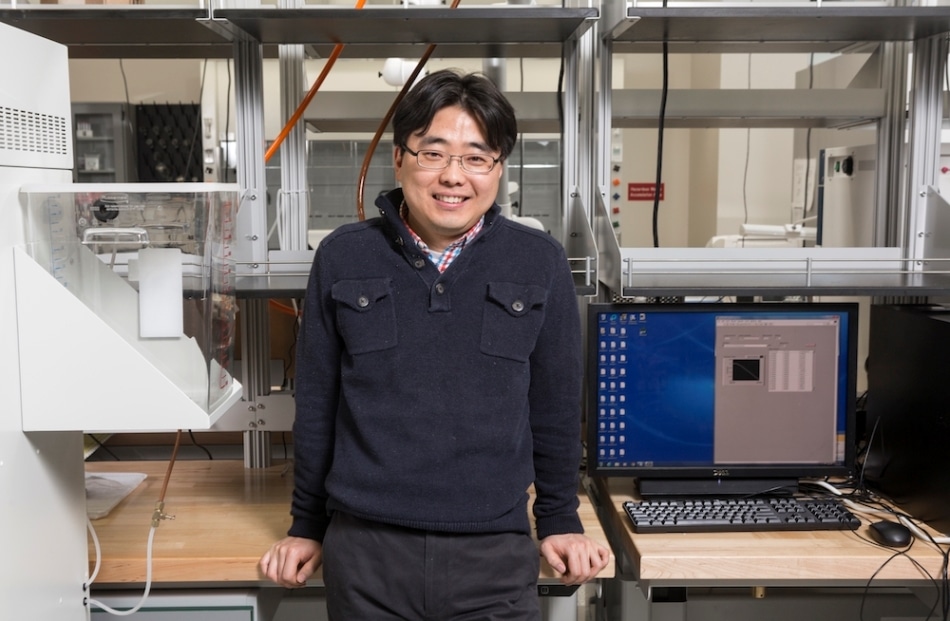Oct 19 2017
Scientists from the Binghamton University, State University of New York have developed a micro-scale biological solar cell with the ability to generate higher power density for longer than any such prevalent cell.
 Binghamton University Electrical and Computer Science Assistant Professor Seokheun Choi. CREDIT: Binghamton University, State University of New York.
Binghamton University Electrical and Computer Science Assistant Professor Seokheun Choi. CREDIT: Binghamton University, State University of New York.
According to Seokheun Choi, a Binghamton University Electrical and Computer Science Assistant Professor; for effective functioning of an independent, stand-alone, self-sustainable point-of-care diagnostic device in remote and limited-resource regions, a microfluidic lab-on-a-chip system with the potential to generate its own power is crucial. Miniaturized biological solar cells, or micro-BSCs, could be the most appropriate power source for such applications, primarily because the method is very similar to earth’s natural ecosystem.
Micro-BSCs can continuously generate electricity from microbial photosynthetic and respiratory activities over day-night cycles, offering a clean and renewable power source with self-sustaining potential. However, the promise of this technology has not been translated into practical applications because of its relatively low power and current short lifetimes.
Seokheun Choi, Assistant Professor, Electrical and Computer Science, Binghamton University
Choi along with Lin Liu, a PhD candidate, developed a micro-scale microfluidic biological solar cell which can achieve high electrical power and long-term operational capacity—enabling a sustainable and practical power supply for lab-on-a-chip applications. The bio-solar cell produced the highest power density for a much longer time in comparison with any prevalent micro-scale bio-solar cells.
The device will release biological photo-energy conversion technology from its restriction to conceptual research and advance its translational potential toward practical and sustainable power applications for point-of-care diagnostics to work independently and self-sustainably in limited-resource and remote regions.
Seokheun Choi, Assistant Professor, Electrical and Computer Science, Binghamton University
The paper titled “Self-sustainable, high-power-density bio-solar cells for lab-on-a-chip applications” was published in the journal Lab on a Chip.
Researcher is using bacteria, paper to create clean energy
Binghamton University researcher Seokheun “Sean” Choi is developing new ways to create electricity using bacteria. His small, paper-based batteries and microbial fuel cells could one day replace oil, coal or even solar energy. (Credit: Binghamton University, State University of New York)